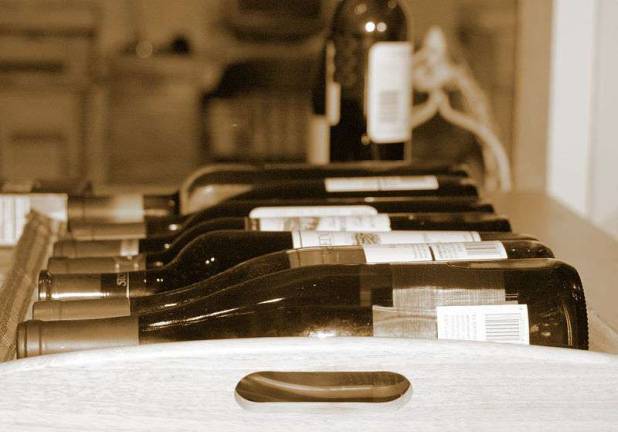Why Is Kosher Wine So Bad?

Jewish wines that are delicious and complex do exist Passover has come and gone already this year, but if there's one question that I get more than any other from my fellow Jews, it is this: "Why is kosher wine so bad?" It could almost be added as the fifth question in the Passover haggadah. Wine is a central part of Jewish culture. It is prayed over during the weekly Shabbat, drunk under the chuppa during the exchange of vows, and sipped with relish during many festivals. It would stand to reason that, given how much vino we are required to drink, Jews should probably make the best wine there is. This is, very sadly, far from true. Well, I am here to Let My People Go ...or at least their palates. Kosher wine doesn't have to taste like the remnants of a Smucker's grape jelly jar. It can be drinkable and, yes, even delicious and complex. The fundamental thing to know about kosher wine is that there are two basic types: mevushal, and non-mevushal. It is usually the mevushal wines that have given kosher wine a bad name. The process of making a mevushal wine entails flash pasteurization. In a nutshell, due to the intricacies of rabbinic laws concerning kosher diet, any wine that is made and handled by a gentile (or a non-Sabbath-observant Jew), cannot be considered kosher. The wine, however, can be "purified" by boiling it. It only need boil for a split second, but boil it must. After that, it can be served by a gentile and still be considered kosher. This would all be well and good if heat weren't wine's number one enemy. Raising the vino's temperature to that point, even for a split second, drastically changes the flavor of the wine and robs it of most of its unique characteristics. Drink a little bit of this stuff, and your taste buds will feel as repressed as the protagonist of a Philip Roth novel. Non-mevushal wines, however, are made completely by Sabbath-observant Jews. By doing this, there is no need to "purify" the wine. Strict kosher observant Jews will only allow other Sabbath-observing Jews to serve this wine to them, to avoid breaking kosher law. If you are serving this wine for a Jewish holiday, however, this will most likely not be an issue. Making non-mevushal wine is much easier to do in Israel, where keeping kosher is not only a way of life, but the norm. And it just so happens that grapes have been grown and wine has been made in Israel for thousands of years. One of my absolute favorite producers in Israel is Tishbi. Their Tishbi Cabernet Sauvignon / Petite Syrah, 2010 ($11.99 at Crush Wine & Spirits, 153 E. 57th St. btwn. Lexington and 3rd, 212-980-WINE), rivals any Cali-cab I've had in the same price range. It has tons of pipe tobacco and leather scents, with big, bold cherry fruit flavors, and the 30 percent Petite Syrah gives it a peppery finish. If you're looking for a bold kosher white wine that can hold its own, look no further than Golan Vineyards' eponymous Golan Chardonnay, 2010 ($15.99 at Beacon Wines & Spirits, 2120 Broadway btwn. 74th and 75th Sts., 646-213-0776). This is a no-nonsense chardonnay with just enough spice, vanilla and tropical fruit flavors. For those who love the unctuous mouth-feel of Napa style chardonnay, you will absolutely fall in love with the flavor profile on this great white. For something sweet and light to finish off any Jewish celebration, try Dalton's Sweet Muscato, 2010 ($12.99 at www.hudsonvalleywinesandliquors.com). From the Galilee area of Israel, Dalton's slightly fizzy Muscato shows that kosher wine can be sweet and interesting at the same time. Ripe peach, tangerine and honey flavors are balanced by an effervescence that keeps the sweetness from being overbearing. Above all, always make sure to check that the wine you are buying is a non-mevushal. Many producers make both mevushal and non-mevushal versions of their products. While this is by no means an epicurean stamp of approval across the board, it will at least ensure that it hasn't been boiled. Now, if we can just do something about that gefilte fish. Follow Josh on Twitter: @joshperilo.